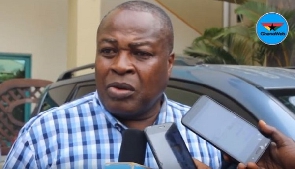In an unprecedented innovation in Ghana's fiscal administration, the Minister of Finance and Economic Planning, Kwadwo Baah-Wiredu would be presenting a national budget before year end.
Today's budget statement would be his second budget since he assumed office earlier in the year. This is the first time in the history of Ghana that a budget is being released before the conventional practice of the first quarter of the New Year.
The Minister of Finance and Economic Planning, Baah-Wiredu who took the decision said it is an essential measure to allow early disbursement so that public institutions, especially district assemblies, could better implement their annual programmes. Following that announcement, Ghanaians, especially corporate organisations have been lobbying for their needs to be considered in the 2006 budget.
The Association of Ghana Industries (AGI), has made a proposal that the 2006 budget should consider a reduction of the corporate tax to 25 percent. The association wants the withholding tax reduced and the deferment of Value Added Tax (VAT) extended to cover more companies.
The Ghana Trades Union Congress, another powerful pressure group said the union wants the 2006 budget to focus on easing the unemployment situation in the country. Speaking to the ADM in an exclusive interview, the Secretary-General of Ghana's TUC, Kwesi Adu Amankwa said the 2006 budget should focus on job generation since the current unemployment situation in the country is alarming.
"It's good that next year's budget is going to be read today, what our organization seeks is a budget which will generate jobs", he remarked. Asked about some of the other things he hoped to see in the budget, Mr. Amankwa said that he wanted to see a "budget of hope".
The President of National Union of Ghana Students (NUGS), Samuel Okudzeto Ablakwa told the ADM that NUGS anticipates a budget that would "give greater budgetary commitment to the education sector."
He said, "Ghana has received debt cancellations this year and our forgivers insisted that those monies should be channelled into education, health and poverty alleviation." Mr Ablakwa prayed the government would put more money into education in 2006 so "that the GetFund would not look like the only panacea to solve the problems we are facing in the education sector."
Sampling the views of other individuals on the streets of Accra, ADM found out that most Ghanaians are hoping for a budget that would reflect in their pockets.
"I wish the 2006 budget would be more friendly, as well as withstand any external shock. We want a budget that would stabilize the cedi and make the Golden Age of business materialize", Beatrice Frimpong a trader at Makola market in Accra Central Business District stated.
For the many Ghanaians who do not know nor care about the technicalities in the budget, the implementation of its content and how it would change their lives is what interests them. Ghanaians would no doubt be glued to their television and radio to make sense of what hope the Finance Minister's words would hold for them in fiscal 2006.
Click to view details



Business News of Thursday, 10 November 2005
Source: ADM
















